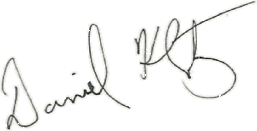![]()
Dear Reader,
I had the privilege of hearing Robert Pinsky* give a poetry reading recently.
He stopped between sets of poems to take questions several times, and people
asked them, but not in bulk, especially given the crowd filling the lecture
hall. It was evident that we were all there foremost to listen, to hear his
poems through his voice.
The person who introduced Pinsky praised him as an intelligent poet who wrote
of intelligent things without pigeonholing himself as an "academic poet." In
response, Pinsky said he holds smart things in high regard, and "I prefer
smart things over stupid things any day."
What keeps Frodo's Notebook alive is our belief first in giving young writers
an audience that carefully listens to them, on their own terms and with great
interest. Also, we stay vibrant because we believe there are teens (and lots
of 'em) who prefer smart things over stupid things (e.g. Teen People, Cosmo
Girl). The writers we feature on our site give credence to our beliefs, as
do
our appreciative readers.
A lot of grant money and publicity right now is going to teenagers involved
with slam and performance poetry. National competition structures are in place,
after school programs help students spin their feelings into hip-hop, and literary
magazines wonder if it's a good or bad sign. If you're interested in the state
of poetry, slam poetry is a hot issue.
Pinsky, asked to comment, said there are many good things to be said about
performance poetry. However, these praises mostly express the sentiment that
it is a good step in the right direction for many people--it's what gets them
into so-called literary poetry. Performance poetry can be to literary poetry
what marijuana is to cocaine. (An over-the-top analogy I offer flashing my
poetic license.)
We also believe that tons of teens have stepped beyond the "gateway drug" of
performance poetry. They, like me, enjoy watching a performer work his magic,
but know that they really hunger for a poem they can bring to life with their
own voice, that they can make their own.
That is to say, the voice of the reader is the voice of
the poem. If I read aloud a Robert Pinsky poem, I am the medium for the poem.
This is in sharp contrast with the world of performance as we know it today--if
I sing a song by U2 or the White Stripes, I'm doing a cover. If I offer up
a poem by reg e. gaines or Bob Holman (two popular New York slam poets), I'm
presenting a cover of their performance, rather than being the very voice of
the poem. I'm imitating the voice rather than being the voice.
And so we at Frodo's Notebook will continue to cheer on performance poets,
happily watching them shout their lines and spin their rhymes. We will hope
that the hype and glamour surrounding performance will continue to foster a
public interest in poetry. But our publication will hold fast to the belief
that when the lights, drum loops, and microphones are a memory, it is the literary
poem that readers will cherish most. They will find their own voices on the
printed page, saying things they never thought of before--"their own soul
reflected back to them," as a friend recently put it--and that is what
will carry them through everyday life, with its blatant lack of hype and performance.
As always, thanks for reading.
Sincerely,

Daniel Klotz
Redactor in Chief
Frodo's Notebook
dan@frodosnotebook.com
* Robert Pinsky is a prominent American writer, former U.S. Poet Laureate, and an advisor to the Words Work Network (of which Frodo's Notebook is a member).